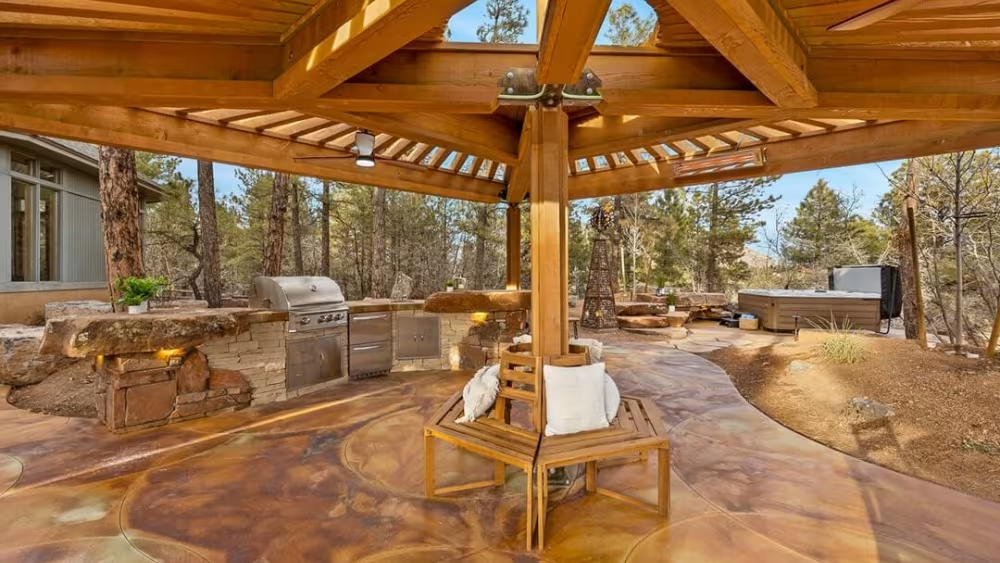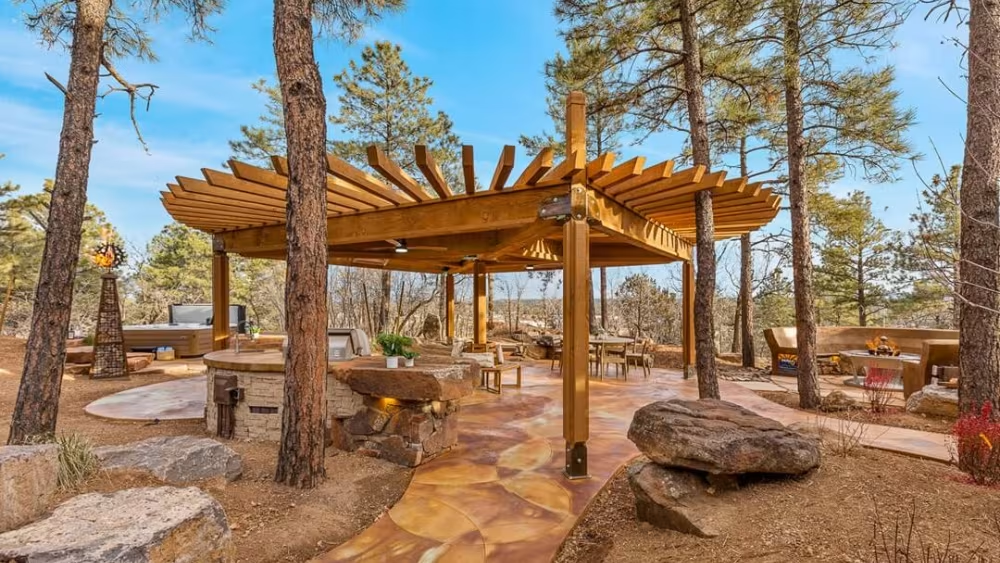
Water features possess a timeless allure. Features like serene fountains and dramatic cascading waterfalls enrich landscapes by creating tranquil retreats. Retreats that promote wellness and boost property value.
Water features in residential and commercial settings elevate spaces by fostering relaxation and a connection to nature. If you're enhancing a home garden, retail center, or apartment complex, the presence of a water feature leaves a lasting impression. Their ability to adapt to various designs and scales makes them indispensable for creating memorable, multi-dimensional landscapes.
Water features immediately draw the eye, serving as captivating focal points that add depth and elegance to any landscape. Their dynamic presence enhances curb appeal and makes properties more attractive to buyers, tenants, or visitors. In competitive real estate markets, properties with thoughtfully designed water features often command higher value. The tranquil sound of flowing water or the visual charm of a cascading fountain can transform outdoor spaces into standout attractions.
Water features are versatile enough to fit even the most compact areas. Wall-mounted fountains, pondless waterfalls, and bubbling rocks provide the same calming ambiance as larger installations without overpowering the space. These designs allow property owners to enjoy the soothing effects of water, making it possible to incorporate elegance and tranquility into landscapes of any size. Small-scale water features are an excellent solution for maximizing impact while preserving balance in tighter layouts.
The soothing sound of flowing water has a powerful impact on mental well-being. It fosters relaxation, reduces stress, and creates a serene environment that encourages mindfulness. Numerous studies link water features to decreased anxiety and improved mood, making them valuable additions to personal gardens and commercial spaces seeking to offer tranquility and mental rejuvenation.
Water features naturally attract birds, butterflies, and other wildlife, adding movement and vibrance to the landscape. This connection to nature fosters a more profound sense of peace and promotes biodiversity. Interaction with wildlife is therapeutic for homeowners and visitors and enhances the environment’s ecological balance.
Specific water feature designs, such as those incorporating cold water immersion areas, can offer physical health benefits. These include reducing inflammation, improving circulation, and aiding in post-activity recovery. Adding such features introduces a functional wellness aspect, making outdoor spaces beneficial for the mind and body.
The sound of running water provides a natural and soothing backdrop, masking unwanted noise from traffic, machinery, or urban environments. This makes water features especially valuable in commercial or urban settings, providing comfort and creating a more serene atmosphere for residents, employees, or visitors.
Water features release negative ions into the air, which help purify the surrounding area by reducing airborne pollutants. Additionally, they create a cooling effect, making outdoor spaces more enjoyable, particularly in hot climates. This dual benefit of cleaner air and a cooler environment adds functional and environmental value to properties.
Pondless water features are an excellent option for those who desire the beauty and tranquility of water elements without the upkeep of traditional ponds. These systems use a hidden reservoir to recycle water continuously, requiring minimal maintenance while providing the same auditory and visual appeal.
Water features enhance commercial spaces by creating inviting environments and encouraging relaxation and interaction. Retail centers, apartment complexes, and office buildings serve as focal points, elevating the property’s ambiance. These elements boost foot traffic, promote tenant satisfaction, and create spaces where people feel comfortable lingering, contributing to the property’s overall success.
Modern architecture often incorporates water features to complement both contemporary and traditional designs. Sleek fountains and reflective pools harmonize with minimalist structures while cascading waterfalls and natural ponds enrich classic landscapes. Their timeless appeal adds depth and character, seamlessly integrating with the property’s style and enhancing its visual identity.
Water features require consistent care to maintain their beauty and functionality. Regular cleaning, water treatment, and pump maintenance are crucial for smooth operation and longevity. Low-maintenance designs, such as pondless systems or self-cleaning fountains, can significantly reduce upkeep while preserving the feature’s appeal.
Selecting the correct type of water feature and placing it thoughtfully is integral to complementing the landscape. Property size, style, and purpose determine whether a fountain, waterfall, pond, or bubbling rock is best. Strategic placement maximizes visual impact and integrates the feature seamlessly with the environment.
Sustainability is an essential consideration for modern water features. Opt for energy-efficient pumps, recycled water systems, or drought-tolerant designs to minimize environmental impact. These eco-friendly choices reduce resource use and appeal to environmentally conscious property owners and buyers.
Water features deepen our bond with the natural world by introducing the soothing presence of water into everyday environments. By bringing us closer to nature, water features keep us in touch with ourselves and our communities. The gentle trickle of a fountain or the cascading flow of a waterfall creates an atmosphere of tranquility, transforming outdoor spaces into serene havens that inspire relaxation and mindfulness.
These elements enhance a landscape's visual appeal and promote well-being and environmental harmony. Their calming effects foster mental and emotional balance, while their integration supports biodiversity by attracting birds, butterflies, and other wildlife.
.png)
.webp)

In Arizona, outdoor living isn’t a luxury. It’s a lifestyle. With more sunny days than almost anywhere else in the country, homeowners across Phoenix, Scottsdale, and Flagstaff see their backyards as an extension of their homes.
Read More...
Designing a custom landscape in Phoenix is more than choosing plants or pavers. It’s about transforming your property into a space that fits your lifestyle, complements your home, and thrives in Arizona’s desert climate.
Read More...
Arizona’s natural beauty is defined by its rugged terrain - rolling foothills, desert slopes, and rocky soil that tell the story of the landscape itself.
Read More...